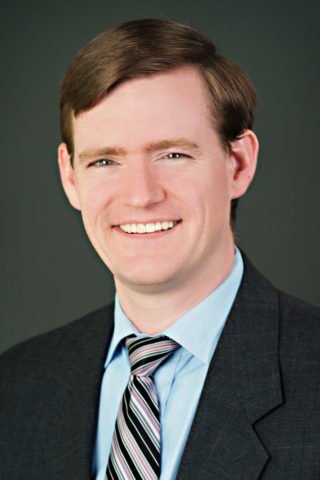Filter


Burden of High Rents Surged during COVID
As the bad first two years of the pandemic recede in the rear-view mirror, a new report reminds us how tough things got for renters. In 2021, a record 21.6 million U.S. families were paying more than 30 percent of their income on rent, which is the real estate industry’s benchmark for people whose housing costs have become a financial burden. That amounts to just under half of all renter households who were struggling during COVID – very close to the high reached during the Great Recession. And the vast majority of the 1.2 million increase from 2020’s level was in the group that struggles the most: families who pay more than 50 percent of their income to rent a…
February 21, 2023
The Case for Signing a Power of Attorney
The best reason to set up a power of attorney for yourself or an elderly family member is to avoid a far more contentious and expensive alternative later: guardianship. A power of attorney becomes urgent if an elderly family member is showing early signs of dementia. “You want to run, not walk, to get that done because capacity tends not to get better,” said Jonathan Williams, an attorney with the Clarity Legal Group in the Raleigh-Durham, N.C., area. “Having good legal documents in place, if the person has the ability to execute them, can be helpful later on,” he said. In a power of attorney, the person signing the document agrees to name an agent, usually a trusted family member…
February 16, 2023
Mental Health Care is Crucial Disability Need
During the pandemic, calls to mental health hotlines soared. People in emotional distress learned that psychologists were booked months in advance or were completely unavailable. While COVID dramatized the need for mental health treatment generally, new research reveals how important being treated is to people with disabilities. Isaac Swensen and Carly Urban at Montana State University found that ready access to outpatient care slightly increases applications for disability benefits by working-age people under Social Security’s insurance program and by poor and marginally employed workers under the companion program, Supplemental Security Income (SSI). Mental illness in its severest forms can interfere with the ability to work, making some individuals eligible for federal disability assistance. But to qualify, the Social Security Administration requires…
February 14, 2023
Health Insurance Increases Latinx Wealth
About one out of every five Latinx workers in this country lacks health insurance. The uninsured ratio rises to one in four in the states that have chosen not to expand their Medicaid programs to more low-income workers under the Affordable Care Act. The motivation for Josefina Flores Morales’ new research is that there’s more to health insurance than just medical care. It is also critical to individuals’ financial health, she argues, and broader insurance coverage in the Latinx community is an underappreciated way that the vast wealth gap between them and non-Latinx White workers could be reduced. Having insurance keeps people healthy so they can continue to work and is important for other financial reasons. Insurance reduces the size of medica…
February 9, 2023
Boomerang Kids Don’t Derail Their Parents
A popularized image of parents who struggle when adult children move back home is not shaping up as an accurate picture of the arrangements. Unemployment, divorce, college graduation – adult children in their 20s and 30s move back into a parent’s home for many reasons. And the parents can have all sorts of reactions, good and bad, to their boomeranging kids. Some parents get stressed out by young adults who return home because they need financial support. Others welcome having the kids back to pad the empty nest, help with household chores, or help pay the bills. The return home isn’t necessarily a one-time thing either. “As they attempt to gain financial independence, adult children may alternate between living on…
February 7, 2023
Student Debt Plan Helps Black Retirees
For the sliver of retirees who are far behind in paying their own or their children’s student loans, Social Security can withhold part of their benefits to pay the loans back. But college has gotten much more expensive since the baby boomers attended, and loan delinquencies are higher among working people and especially Black Americans. When today’s Black workers retire, their estimated household delinquency rate will be 5.4 percent – well more than double the rate for White and Hispanic retirees. The question is how withholding Social Security benefits will impact the financial security of these future retirees. In cases where the federal government withholds some benefits, it garnishees the lesser of 15 percent of a delinquent borrower’s monthly retirement…
February 2, 2023
Employers Routinely Avoid Paying Overtime
Walk into a restaurant, retail store or hotel, and you might encounter a manager who seems to be doing the same tasks as the people he’s managing. Maybe you’re in one of those jobs. A lawsuit by employees against a retail store revealed how meaningless the title of manager can be: the store managers were “stocking shelves, running cash registers, unloading trucks and cleaning parking lots, floors and bathrooms.” Hardly the types of responsibilities that go with overseeing one’s coworkers. The employees were suing for overtime pay under a Depression-era federal law to receive back pay for overtime when they worked more than 40 hours per week. Employers are exempt from paying overtime under this rule, however, if the employ…
January 31, 2023
Middle Class Gets the Most from Medicare
This is a fact of retirement life: older Americans haven’t paid as much into Medicare and Medicaid as government spends on their healthcare and nursing home stays. But it is middle-class retirees who get the most out of the system, according to a new study. Middle-income households receive about $230,000 to $260,000 more in Medicare and Medicaid benefits, on average, during their retirement years than the total amount they’ve paid in. Their contributions consist of the Medicare payroll and income taxes deducted from workers’ paychecks, the portion of their federal and state income taxes devoted to Medicare and Medicaid, and the Medicare Part B and D premiums they are paying in retirement. The net benefit of the programs to the midd…
January 26, 2023
Medicare to Cover 3 New Dental Procedures
“Is it medically necessary for a person to be able to chew?” Dr. Lisa Simon, a physician and dentist at the Harvard School of Dental Medicine, asks. This is a serious question for older Americans in fragile health. I know a 93-year-old man whose teeth problems make it extremely difficult for him to eat meat and many other foods on the dinner table. Two-thirds of retirees do not have dental insurance, which means they may decide to forgo getting expensive dental care. The importance of dental care to nutrition and health is also an equity issue for older Blacks and low-income retirees, who are more likely to be missing all of their teeth. Medicare has historically paid for very few dental procedures…
January 24, 2023
What’s Up with Medicare Advantage Ads?
Starting months before my 65th birthday, my mailbox has been swamped with advertisements for Medicare Advantage insurance plans. The ads are still coming in. And then there are the television commercials with promises of Advantage plan benefits that original Medicare doesn’t cover – vision, dental, hearing services, rides to doctors’ appointments, zero premiums. Sounds amazing, doesn’t it? The advertising blitz surely has contributed to the doubling in Advantage plan enrollment since 2013, to 28 million last year. The plans are overtaking Medigap plans, which the nonprofit Commonwealth Fund estimates do not bring in as much profit for brokers as Advantage plans. It is true that the vast majority of Advantage plans provide some type of vision, dental and hearing coverage. And retirees with these benefits in…
January 19, 2023
Great Depression Holds Lesson for Our Time
The Great Depression, sparked by a devastating collapse in stocks followed by 25 percent unemployment, remains the deepest recession in U.S. history. A new study laying out the long-term negative impacts on Americans born during that time might be consequential for today’s youngest citizens – teenagers born during the Great Recession of 2008 and 2009 and toddlers born in the midst of the steep COVID downturn in 2020. The researchers found that the stresses and financial strains on parents from the Depression’s extraordinarily high unemployment over a protracted period of time did long-term damage to the health and careers of their children that persisted late into their lives. In a separate but related paper, they also found that people exposed to the Depression in…
January 17, 2023
Falling Math Scores May Cut Future Earnings
Scores on 8th grade standardized math tests dropped during the pandemic, reversing a large part of the gains students had made since the 1990s. U.S. Secretary of Education Miguel Cardona called the news last October “appalling.” But declining scores only confirmed for many parents what they had witnessed as their children struggled to engage in classes conducted over Zoom when the schools were closed down. Now comes some of the fallout. The decline in math scores between 2019 and 2022 is expected to reduce the lifetime earnings for the average student by nearly 2 percent, or $19,400 in today’s dollars, according to a new study. This may not sound like a lot spread out over a decades-long career. But think about…















